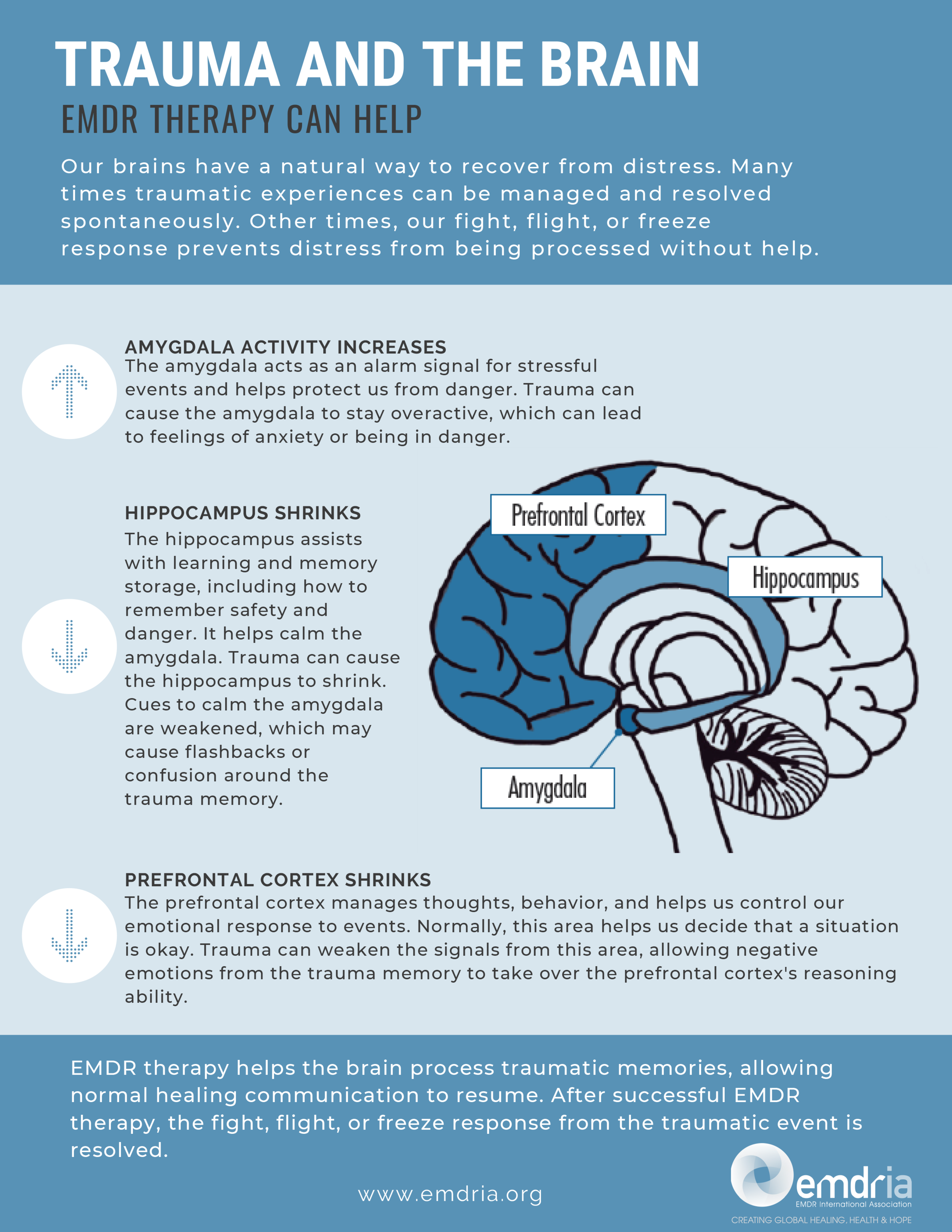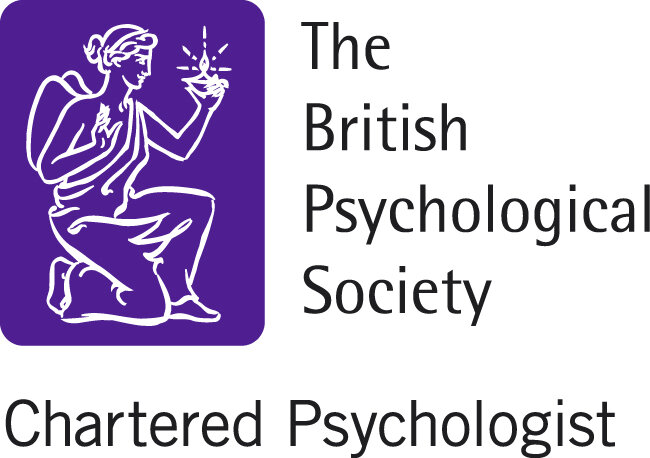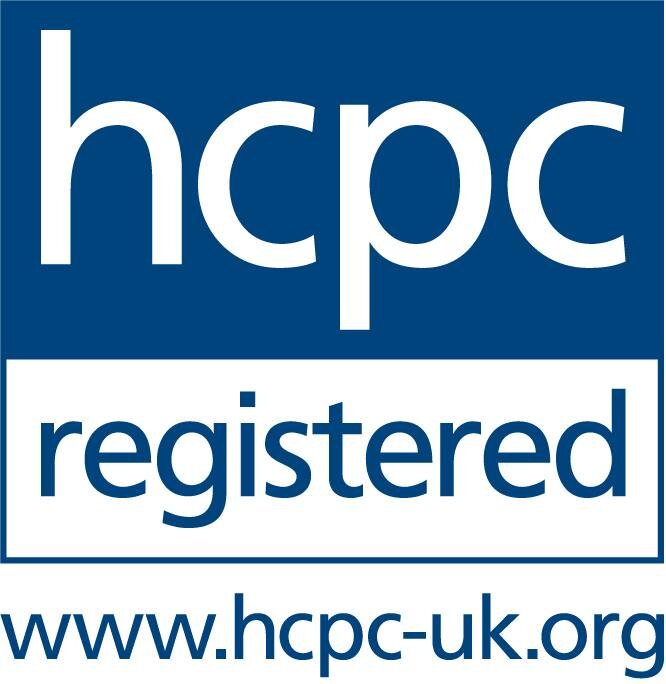Eye Movement Desensitisation and Reprocessing (EMDR) is a form of psychotherapy which enables people to heal from distressing and traumatic life experiences. EMDR is particularly well known for its ability to alleviate upsetting symptoms of trauma and allow your mind to return to more adaptive processing.
Trauma can present itself in various shapes and forms but most likely has a profound impact on the functioning and emotional welling. People who experienced life-threatening events at some point in their lives can develop symptoms of PTSD (post-traumatic stress disorder). This could be due to an accident, life-threatening illness, childhood abuse, as well as many other less pronounced but somehow persistent relational traumas often established during childhood. These events tend to remain unprocessed and can be a source of significant emotional distress which often manifest in flashbacks of past events, nightmares, night terrors, avoidance of thinking and doing things that remind the person of the difficult memories. Often, people who have experienced trauma struggle to move past their experiences and they tend to re-experience them as if they were happening in the current moment. It might feel as if their minds got stuck in the past when the trauma took place.
For those people, EMDR can often provide a way to revisit their memories safely and securely to help them adapt their processing to release the obstacle which might be getting in the way of the natural process of healing. EMDR does it by using eye movements or other forms of bilateral stimulation when simultaneously thinking and recalling a memory of an event that has been targeted for processing. This means that more adaptive processing can be accessed and as a result, the mind can move onto a natural way of integrating and overcoming distressing symptoms.
EMDR does not make people forget about what happened to them or to take away a part of their memories. It simply allows the person to shift from the unprocessed and therefore distressing recall of their memories to well processed and securely stored recollection of the events. During the treatment, EMDR can be used to tackle various experiences in turns.










